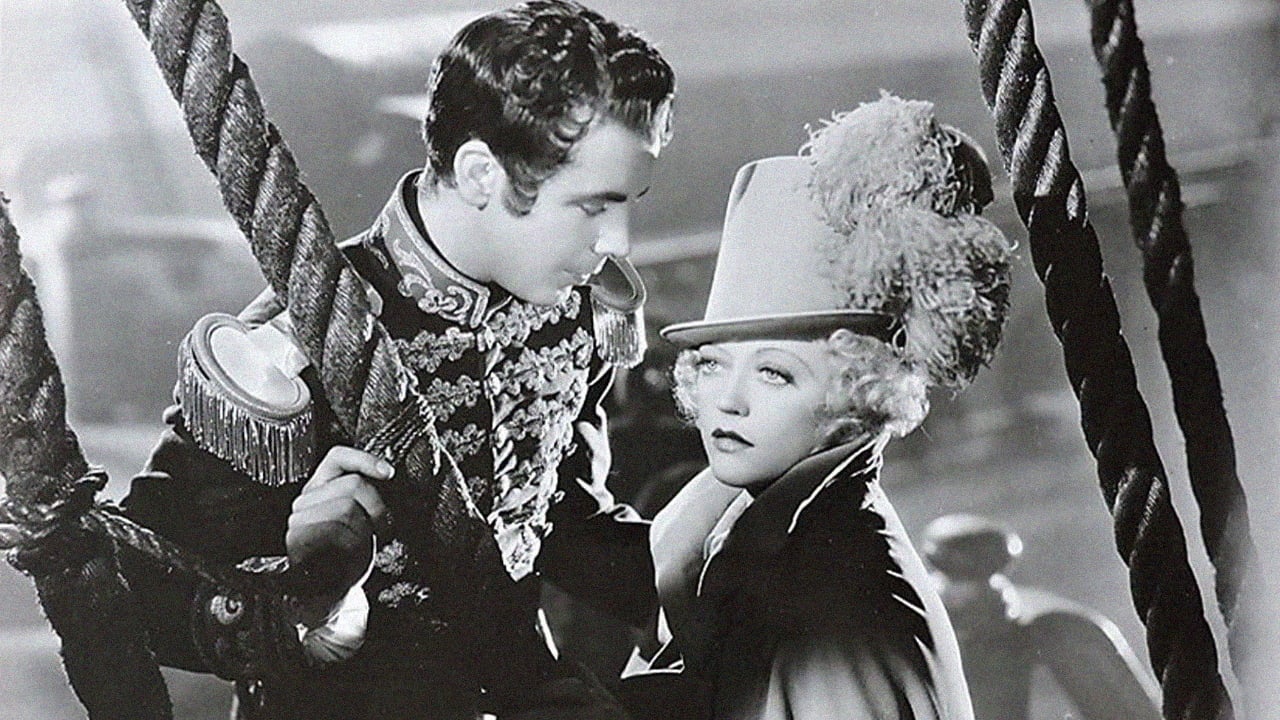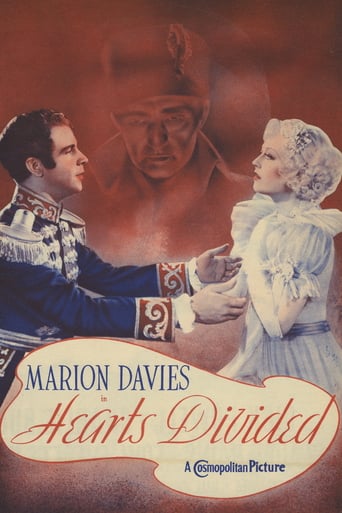

Spoilers. Observations. Opinions. 10/10. Greek chorus is hilarious. Trio of would-be suitors, all old, vie for Betsy's hand. They are losers, and bicker among each other. The duel of drunkardness is also hilarious, and the insults between them are absurd. They lose out to Jerome, who pretends to be a tutor. Jerome is actually the brother of Napoleon Bonaparte. Betsy finds this out later. Claude Rains knocks the role of Napoleon Bonaparte right out of the park. The resemblance is uncanny. One mistake is that Napoleon was not the Emperor of France, but in reality he was the Emperor of the French People. Davies was wonderful. She was radiant. Betsy's family found out that they were not so "high" after all.
... View MoreMarion Davies was a winsome, whimsical, and very pretty comedienne, with a slyly subversive personality not unlike Carole Lombard's. But her mentor and manager William Randolph Hearst preferred to see her as a clothes horse, in stuffy period romances. And so we have this sleepy costume epic, from a flop play by the author of "Naughty Marietta," where she's a Baltimore society heiress, with hair of a color no 1805 society heiress ever knew, who keeps smiling gallantly while her heart is breaking. It's a Norma Shearer sort of part, and Marion's noble suffering is equally uninvolving. She looks glum and too old for the role, and her romantic interest, Dick Powell as Napoleon's brother (!), looks equally unhappy. Claude Rains is an asset as the Emperor, as are Edward Everett Horton, Charlie Ruggles, and Arthur Treacher as her three other suitors (though the screenwriters might have come up with better dialog for them). But mostly it's Marion being noble--acting condescendingly nice to the slave labor, going from haughty to starry-eyed over Powell in record time, shedding glycerine tears, and advancing to an unlikely, logic-defying happy ending. Frank Borzage directs with his typical moonlight and magnolias, but even he doesn't seem to believe it, and Marion seems to be wishing she were in a screwball comedy.
... View MoreI must preface by saying I'm a big Marion Davies fan, but this was the least appealing of her films that I've seen. Worth watching, just to see Claude Rains playing Napoleon-he pulls it off beautifully. Dick Powell is okay, but he and Davies together looks stiff and miles apart in age and demeanor. Simply bad casting, as Davies looks much older than Powell, but more sadly,seems to move awkwardly in the past and given her, which detracts from the idea they can be romantic together. This spoils Rains performance,and even the great character actors Edward Everett Horton & Arthur Treacher are wasted in characters that seem to be contrived, just to fill in time. Miss Page Glory is a much better film, and really shows Davies at her best. Too bad about this film, but skip it.
... View MoreHearts Divided is based on an Edwardian era play by Rida Johnson Young, who if known at all by today's audiences is known for some of the lyrics she wrote for music by Victor Herbert, Sigmund Romberg, and others. It's an old fashioned costume drama involving the marriage of Napoleon Bonaparte's youngest brother Jerome to Elizabeth Patterson of Baltimore. Sadly in real life that marriage was annulled by Napoleon, and he had the power to do it, and Jerome was placed on the throne of one of his conquered kingdoms.By a curious coincidence, Jerome and Bessie Patterson did have a son and through him, a descendant of their's, Charles J. Bonaparte, was the Attorney General of the United States at the time this play was having a limited run on Broadway.The best one in this film is Claude Rains. But Rains was so good a player he was a veritable alchemist in films, making gold of some of the worst dross going. He would play another Napoleon, Napoleon III as well in a later Warner Brothers film, Juarez.This was one of the last attempts by William Randolph Hearst to put his inamorata Marion Davies before the public as a crinoline heroine in a costume drama. She looked uncomfortable to say the least.But that was nothing compared to how Powell felt. The two films from his Warner Brothers period he most detested was this and A Midsummer Night's Dream. He looked ridiculous in period costume in a role that Tyrone Power would have been right at home with.However Powell did get to sing a couple of nice songs from the songwriting team of Harry Warren and Al Dubin. Two Hearts Divided and My Kingdom for a Kiss were the titles and I did especially like Powell's rendition of the latter.So maybe the reason to see this is to see just how uncomfortable Marion and Dick looked.
... View More